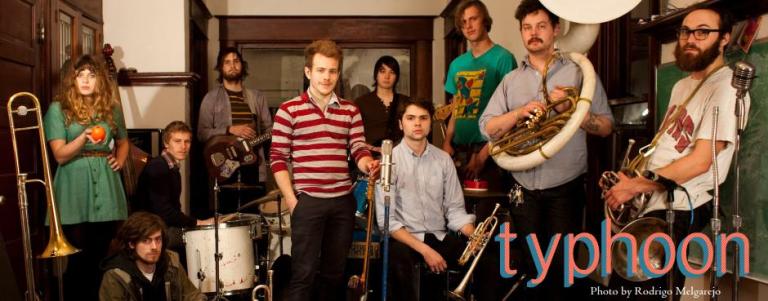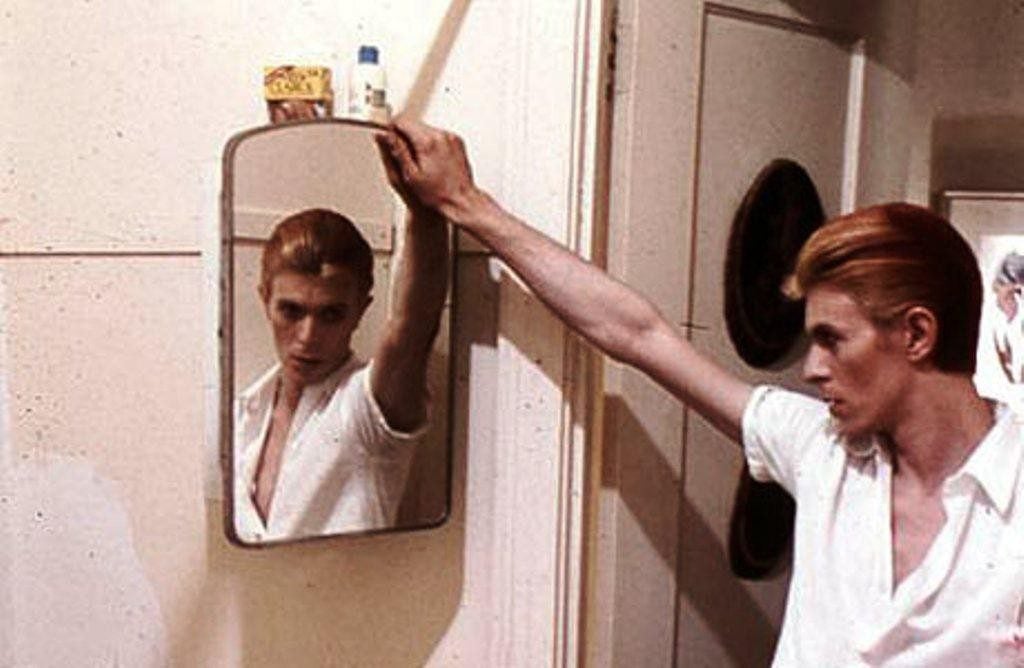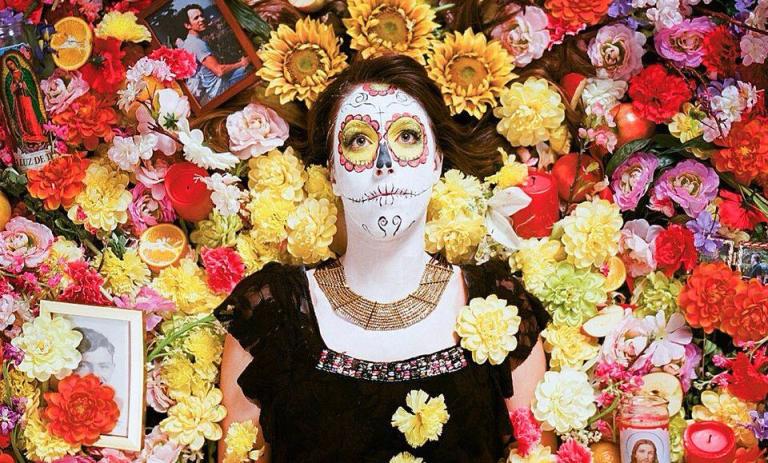My will to live in some semblance of communion with my culture has been snatched from despair by the fact that I can say, in all seriousness, that a certain 11-piece indie-rock band from Portland is best understood through the lens of the Danish philosopher Soren Kierkegaard. If this is a reduction of the marvelous music Typhoon has so far produced, my only defense is that all writing about music is a reduction, so leave me alone, my ego is as sensitive as a bladder after two large coffees and road trip to Pittsburgh.
Typhoon belongs to an upswell of artists defying the current culture by singing about being good.
On the obstetrician’s table of American art, kicking and covered in blood, a new songwriting revolution is squirming, one motivated by this fundamental question: What goodness exists to make life worth living? (Or, in brusquer format, Why not kill myself?)
I would hardly argue that this song has hitherto gone unsung, but rarely have artists been so direct about seeking the good — and become so damn popular for doing it. Rarely can a musician answer the existential question with the delightfully alliterative “you were made to meet your Maker” as Marcus Mumford did and does — and sell as many albums. Rarer still, the triumphant return to the meat of human existence — the human family — for an answer. And yet, from The Avett Brothers’ crooning:
Make sure my sister knows love her,
make sure my mother knows the same.
Always remember there was nothing worth sharing,
like the love that let us share our names.
to The Head and the Heart’s beautiful expression of angst against divorce:
Oh God, I love my vices
But they’ve taken me to places
That I never thought I’d go
And I am ready to be home…
(which ends with the lasting scream, “just wanna die with the one I love beside me,” thus amounting to the final word on humanity’s kinkiest erotic desire) artists are answering the question of “What goodness makes life worth living?” with family.
These bohemian ethicists are busy dredging their lives to deliver in singular gasps and declarative sentences the ontological experience of goodness, carving out sacred moments beyond emotionalism in which some holy thing is grasped as self-evidently what we are made to want, what we want to want, the tangibly good and the oh-so-this-is-it. The subject matter of the ethicists is family, the infinite commitment of erotic love, the distance between who we are and who we ought to be (what Heidegger would call metaphysical time), and regret over sin — deathbed stuff, all. Nearly all these — from The Civil Wars and Titus Andronicus to The Oh Hello’s and Fleet Foxes — have their eyes pressed against God in rage, reverence or that more usual God-relation we call wrestling. This defies our current popular culture. These are days in which, if a musical god or goddess bothers to ask the question “why exist?” the answer is unequivocally — partying. (Just dance. It’ll be okay.) Long live, then, the musical mortals.
Now Kyle Morton of Typhoon is the kind of musician who makes a life of meth and abiding sadness seem both desirable and likely, until the realization settles that his lyrical darkness is all upward strive and no wallow. He seeks the good. Now I’m going to defend my thesis: Typhoon supplies two drum kits and a whole mess of horns, guitars and violins to the philosophy of Soren Kierkegaard, not merely trumpeting it, but incarnating it insofar as the philosophy is true and applicable to human existence. This is hinted at in the song titles that reference Kierkegaard’s major works — in “Post Script” and “The Sickness Unto Death” particularly — but is given its full expression in Morton’s lyrics. To understand all this, we’re going to have to dip our feet into the works of the Great Dane, Soren himself.
I’ll explain myself, to the utmost of my abilities, in the following post.












